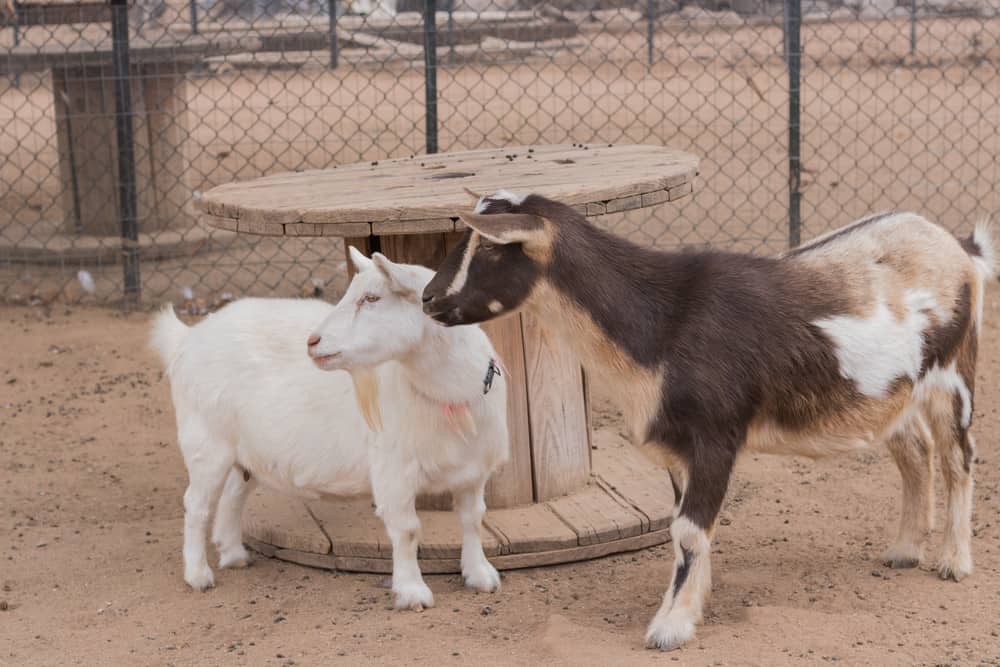
Nigerian Dwarf goats are exactly what you need for a fun, energetic new pet.
Needing very little space to play, Nigerian dwarf goats are small in size but big in heart.
Nigerian Goats
If you are looking for a new pet, maybe a side business, and really love goat’s milk, you can combine all three with the purchase of a Nigerian dwarf goat.
These lively animals are incredibly social and quickly become part of the family.
They also breed easily so if you have enough room you can quickly produce new litters to sell.
It’s important to note that Nigerian Dwarf goats do need to be milked daily, but with just a bit of work, you can quickly produce rich milk that can be consumed either on its own or in the form of other milk products.
There is certainly a lot to love about Nigerian goats.
Nigerian Dwarf Goat Origin and History
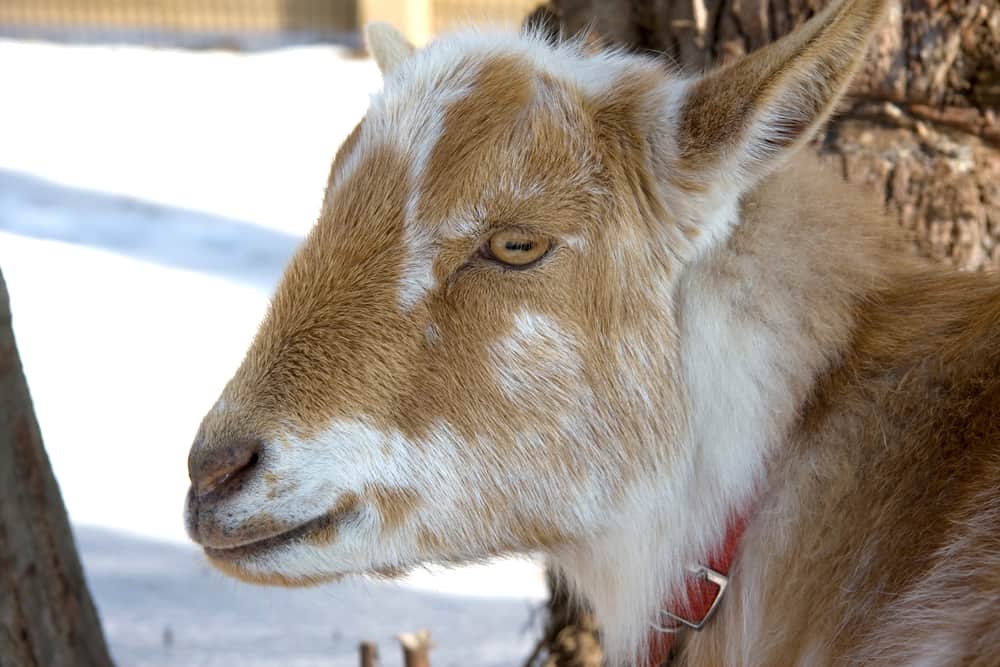
There are a number of West African Dwarf goats, the Nigerian Dwarf goat among them.
This breed, along with other small goats, was imported to the United States between the 1920s and 1960s.
While it has its origin in Africa, Nigerian goats were bred to more closely resemble small dairy goats and are now suitable for dairy production on a small scale.
In 2005, Nigerian Dwarf goats were officially recognized by the American Dairy Goat Association.
Characteristics
Size, height, and weight
Goats, like most farm animals, are measured in size from the ground they are standing on to the top of their back.
Their back, or shoulder area, is called their withers.
Does can grow to be between 16 and 21 inches tall while bucks can grow to be between 18 and 23 inches tall.
For weight, expect your Nigerian Dwarf goat to weigh between 60 and 80 pounds. They are definitely much smaller in size than full-size goats.
Colors and Patterns
Like larger dairy goats, these dwarf goats will have short, fine hair. There are plenty of color combinations to be found.
Common colors include gold, black, and dark brown, but also expect these colors to show up in all sorts of patterns.
Interestingly, while some Nigerian Dwarf goats have horns, others will be naturally hornless.
As for their heads, you will see short ears that stick up on top of a straight face.
Temperament
You can expect a lot of fun with Nigerian goats.
These precocious animals love to play. While you don’t need a lot of space for them, anything extra will add to their play potential.
Like most breeds of goats, set up a few areas where your goat can climb both up and down. Even a fun obstacle course will get plenty of use.
Nigerian Dwarf goats are social animals. They want to know what’s going on and be included in your family.
Be sure to give them plenty of attention and keep toys on hand to play with them.
If you treat them like very large puppies, they will forever love being around you.
Lifespan
Nigerian Dwarf goats have a relatively long lifespan.
They can live to be 12 to 14 years old. Be sure to take proper care of your goats so they will live this long.
**Want other animal choices? Read our Alpaca vs LLama comparison here!**
Breeding Nigerian goats
Whether you want to enter the business of selling Nigerian Dwarf goats or just want a few extra in your herd, breeding is relatively easy.
You can begin breeding Nigerian Dwarf goats when a doe is full-grown at one year old.
While bucks may be ready at three or four months, it’s best to wait until they are eight months of age.
Unlike some animals, you can breed Nigerian goats at any time of the year.
Once pregnant, the gestation period will last between 145 and 153 days.
Does will give birth to a litter of baby goats, called kids. You can expect between three to five kids at a time in a litter.
Feeding Nigerian goats
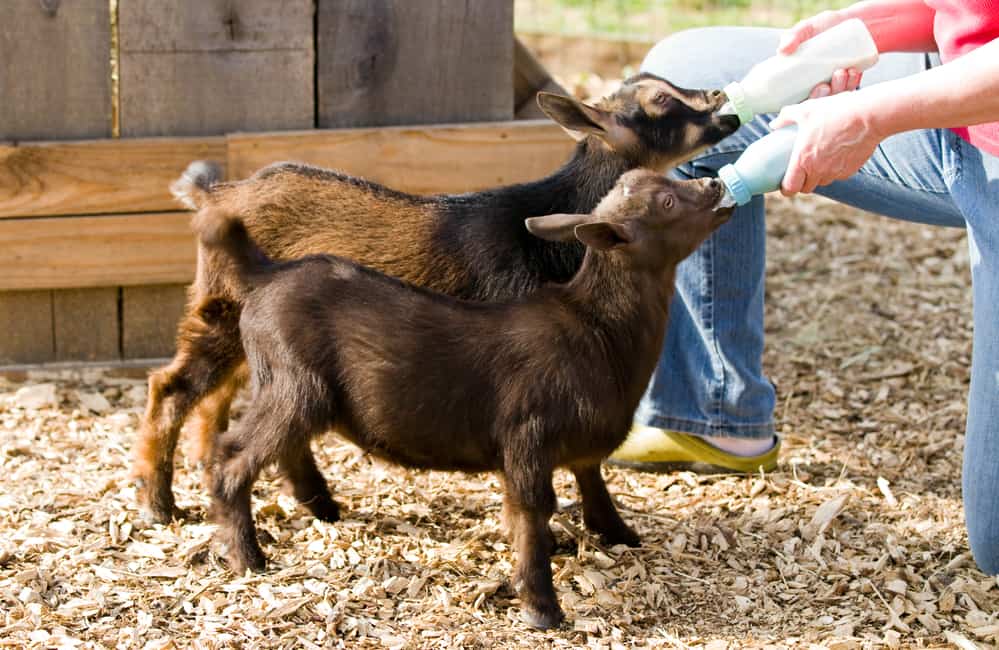
Unlike us humans, Nigerian goats have four stomachs to process their food and their diet needs to reflect this complex process.
Above all else, free choice is of the essence. This process is where you, the owner, provide the necessary nutrients, but the goats are allowed to eat as they want.
In essence, provide the right types of food, usually multiple times a day so your goats can eat at their own pace.
The bulk of your goat’s diet should be good quality hay.
You might notice that your goat doesn’t really chew the hay and instead swallows it.
That’s ok as the hay will break down in time through its four stomachs.
In addition to hay, provide your goat with essential minerals. This includes calcium and phosphorous and usually comes in the form of a block.
If you find your goat isn’t eating enough of the block, it may not have enough of a salt content in it, which they prefer.
Also of importance is access to fresh, clean water. Goats can get a bit messy so be sure to replenish their water container with fresh water and not allow any buildup of dirt or food in it.
Milking Nigerian goats
Female Nigerian Dwarf goats, or does, need to be milked daily.
While certain aspects can affect this, such as how soon she has given birth and what she is eating, know that it is your responsibility as an animal owner to give the best care.
When a doe is nursing her kids, you will not need to milk her as her milk will be used naturally.
However, most kids will naturally wean between one to four months of age.
When this happens, it will be your responsibility to take over. You can expect about one quart of milk per day.
Nigerian Dwarf goat milk is high in butterfat content and averages about 6.5%.
You can drink it straight or learn to make other products from it including cheese.
It might take a little while to get used to the foreign taste but many people like goat milk, especially when you know where the source is.
Health Issues
One really nice reason Nigerian Dwarf goats make such good pets is that they are very healthy.
There are no major health issues to be worried about.
As always, ensure your animals have regular access to veterinarian services, especially if one of your goats is pregnant.
Beyond that, give your goat good food to eat, the opportunity for exercise, and plenty of love, and it should live to its full lifespan.
How much do Nigerian Dwarf goats cost?
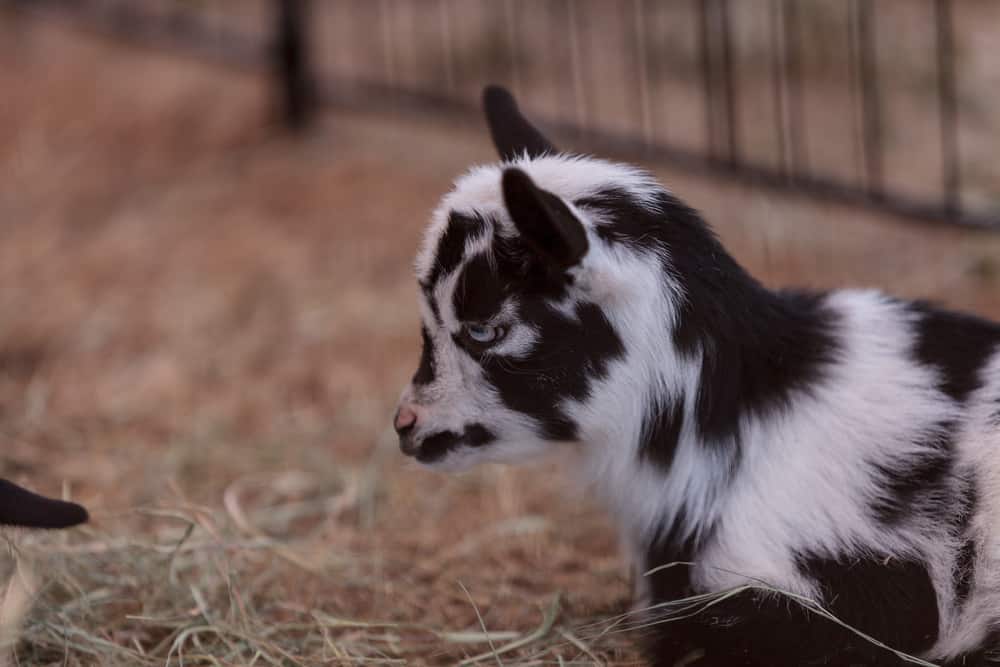
As far as pets go, Nigerian Dwarf goats are relatively inexpensive. Expect to pay between $50 and $100.
If you want a goat that has specific colors or patterns, you might have to pay extra.
The biggest obstacle you will have with wanting a Nigerian Dwarf goat is finding a place to purchase one. It’s best to start with local animal shelters or animal farm rescues.
Breeders do exist but unless you live in a large farming community, you may need to travel to find the right goat.
Online resources may prove to be the best option in finding a new goat.
Conclusion
Nigerian Dwarf goats make excellent additions to a family. Their playful energy and natural curiosity mean there’s never a dull moment.
Related Questions
Are all Nigerian goats Dwarf?
Yes. While there are many breeds of goats from all over the world, there are no full-size Nigerian goat breeds.
While it may be confusing to read articles about these goats and have them referenced as both Nigerian Dwarf goats and plain Nigerian goats, just know that they are the same miniature animal.
What are Nigerian Dwarf goats good for?
Besides being able to produce good-tasting milk, Nigerian Dwarf goats are also good at being companions.
Not only do they make good pets, but they can also provide social support for the elderly and even service animals for those with anxiety issues.
Do Nigerian Dwarf goats make good pets?
Yes, Nigerian Dwarfs make excellent pets. They are playful and affectionate. They are also useful as they can produce a lot of milk.
What’s really nice about these potential pets is they don’t need a lot of space. As long as you have a backyard you will have enough space.
Do Nigerian Dwarf goats need to be milked?
Nigerian goats will continuously produce milk. Goats then need to be milked on a regular basis.
If you do not milk your goat, the milk will harden and cause swelling and extreme discomfort. This is unfair and even cruel for your new pet.
The good news is while Nigerian goats do produce a lot of milk, it is far less than other animals such as cows, so it will not take up as much time.
Also, remember that only does need to be milked.
Conclusion
They can either be your choice of pet or a farm animal since they could produce a lot of quality milk.
Depending on how you would grow and raise Nigerian dwarf goat, it all depends on how well you are providing them with their needs.
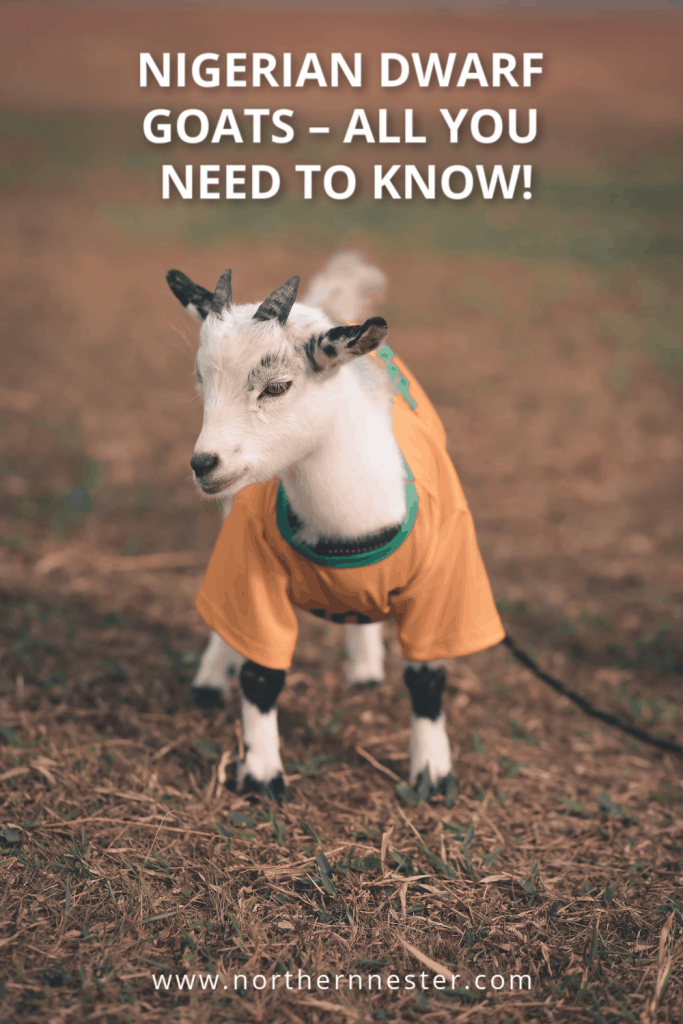


Thank you.. very informative. I will be getting two Nigerian dwarf goats in the fall… their pain and house will be out about 2 Acres away where there is no electricity or running water. So in the winter when it is 0 degrees out, I will only be able to carry fresh water out there twice a day. will this be a problem?
I raise Nigerian Dwarf goats. Being desert animals, they drink surprisingly small amounts of water, so you should be fine. Right now, in the heat of summer, I carry two five gallon pails for three goats every 3-4 days.
If I need two Nigerian dwarf, how do I get them?
I’m interested in a baby Nigerian goat. Could I get information on them. Prices and pictures
Just got 2 dwarf goats , 1 is 1wk old the other is 2 wks old. They came from a responsible breeder. The 1 week old eats like a little pig from a bottle but the 2 wk old will not drink anything from bottle. We have to force feed with syringe. What are we doing wrong?
Hello, we have been having some major deaths here we just lossed 4 of our babies within the last 12 hours they all of a sudden will starting breathing heavy and within mintues they have passed away. This same thing happen last year too. we had just given them a seliumn shot we are so sadden by all of our little angels passing any help would be great
I’m looking for a Nigerian drawf baby goat in the central mi
Hello I have a 10 week old Nigerian dwarf goat I am interested in getting a 9 month old neutered Nigerian dwarf goat. Will it be safe for them to be together due to age difference ?